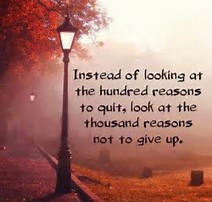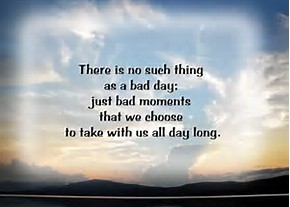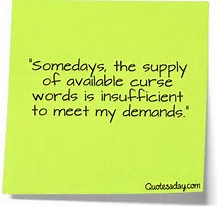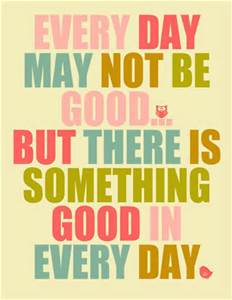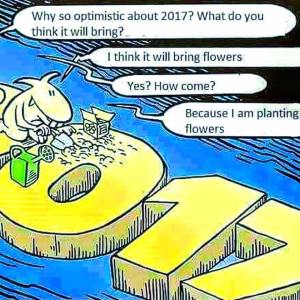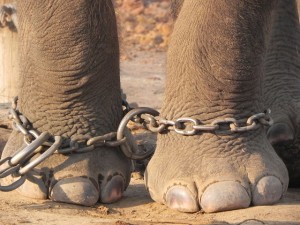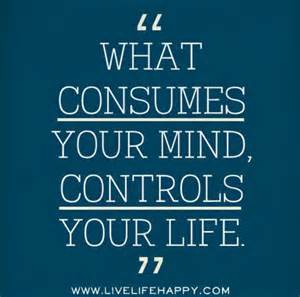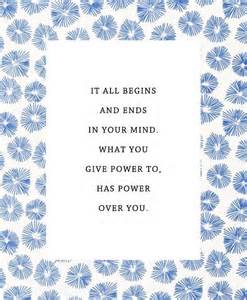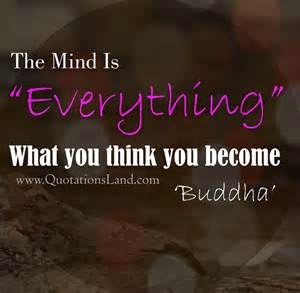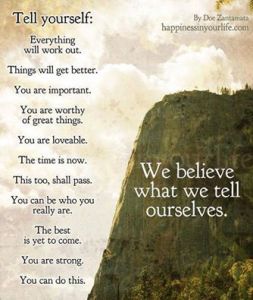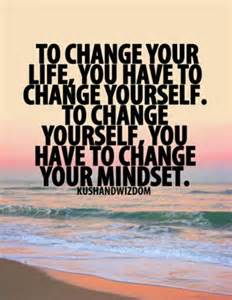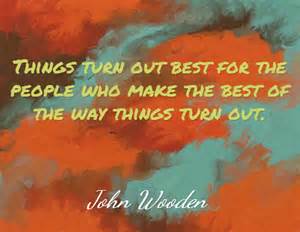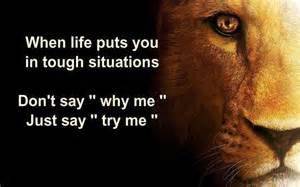
The title of this week’s post comes from a statement made by religious leader and philosopher, Buddha. The full statement goes, “In our lives, change is unavoidable, loss is unavoidable. In the adaptability and ease with which we experience change lies our happiness and freedom.” These words just resonate with me. Yes. Yes. Yes. Our happiness (and our quality of life) is very much dependent on how we choose to experience any change (our any loss brought on by a change) in our life.

We can choose to allow the change or loss to paralyze us. We can hole up somewhere and do absolutely nothing. We can choose to allow the change or loss to get us down, blanketing us in negative emotions (sadness, anger, fear, etc.) and turning us into unhappy people.

Or, we can choose to make the best of the change or loss, finding the positive in it, being happy, and moving onward and upward. As Randy Pausch (the Carnegie Mellon University professor who courageously battled pancreatic cancer) said in The Last Lecture, “We cannot change the cards we are dealt, just how we play the hand.” If we follow his advice, we will concentrate on playing the hand we’re dealt well rather than complaining about it. If we can remember to always do the best we can where we are with what we have, we will be playing whatever “hand we’re dealt” well.

It is important to not let what happens to us dictate our response. We need to take control of our attitude and in doing so we will control the direction of our response and control our level of happiness and freedom.

Charles R. Swindoll (author, educator, and radio host) reminds us that, “…The remarkable thing is we have a choice every day regarding the attitude we will embrace for that day. We cannot change the inevitable. The only thing we can do is play on the one string we have, and that is our attitude … I am convinced that life is 10% what happens to me, and 90% how I react to it. And so it is with you … we are in charge of our attitudes.”

We are most definitely in charge of our attitudes, our responses. Life IS 10% of what happens to us and 90% how WE REACT or RESPOND to it. Think about this. If we subscribe to this, it means that only 10% of life is comprised of stuff that happens to us, while 90% of life is determined by how we react or respond to that which happens to us. So, we shouldn’t spend a lot of time worrying about that 10% over which we have no control. We should concentrate our energies and efforts on that 90% which is our reaction/response. We do have control over how we choose to react/respond to everything that happens to us.

Underlying our ability to respond to change and loss in a way that seeks to understand, puts and keeps things in perspective, is helpful and purposeful, or moves us forward is our mindset, those beliefs and thoughts about what we can and can’t do. Our mindset is very powerful. It can control us; it can hold us back from doing things and in times of change or loss, it can definitely hold us back from accepting or dealing with the change or loss and moving forward.

Louise Hay, author of The Power is Within You, has talked about us being “masters of our own minds.” It is possible for all of us to have a mindset that is expansive instead of limiting. When times and situations are challenging, if we think something can happen or is attainable, we are more likely to do things or position ourselves to actually make happen what we would like (or end up with something close to what we want). An expansive mindset is one that empowers us and helps us focus more on constructive approaches to deal with issues, and helps us view challenges and obstacles (within any change or loss) as opportunities.

Buddha has it exactly right. Our happiness and freedom depends on the adaptability and ease with which we experience change. If we avoid dwelling or getting lost in the side of change that is unpleasant or negative and instead move beyond that and look for the pleasant and the positive we will find that this gives us power and control over the change or loss. With that power and control over the situation, we will be much more satisfied with life, better able to deal with and handle what comes our way, less stressed, and find more joy and happiness in life. We will find that dealing with any type of change or loss becomes a lot easier.








